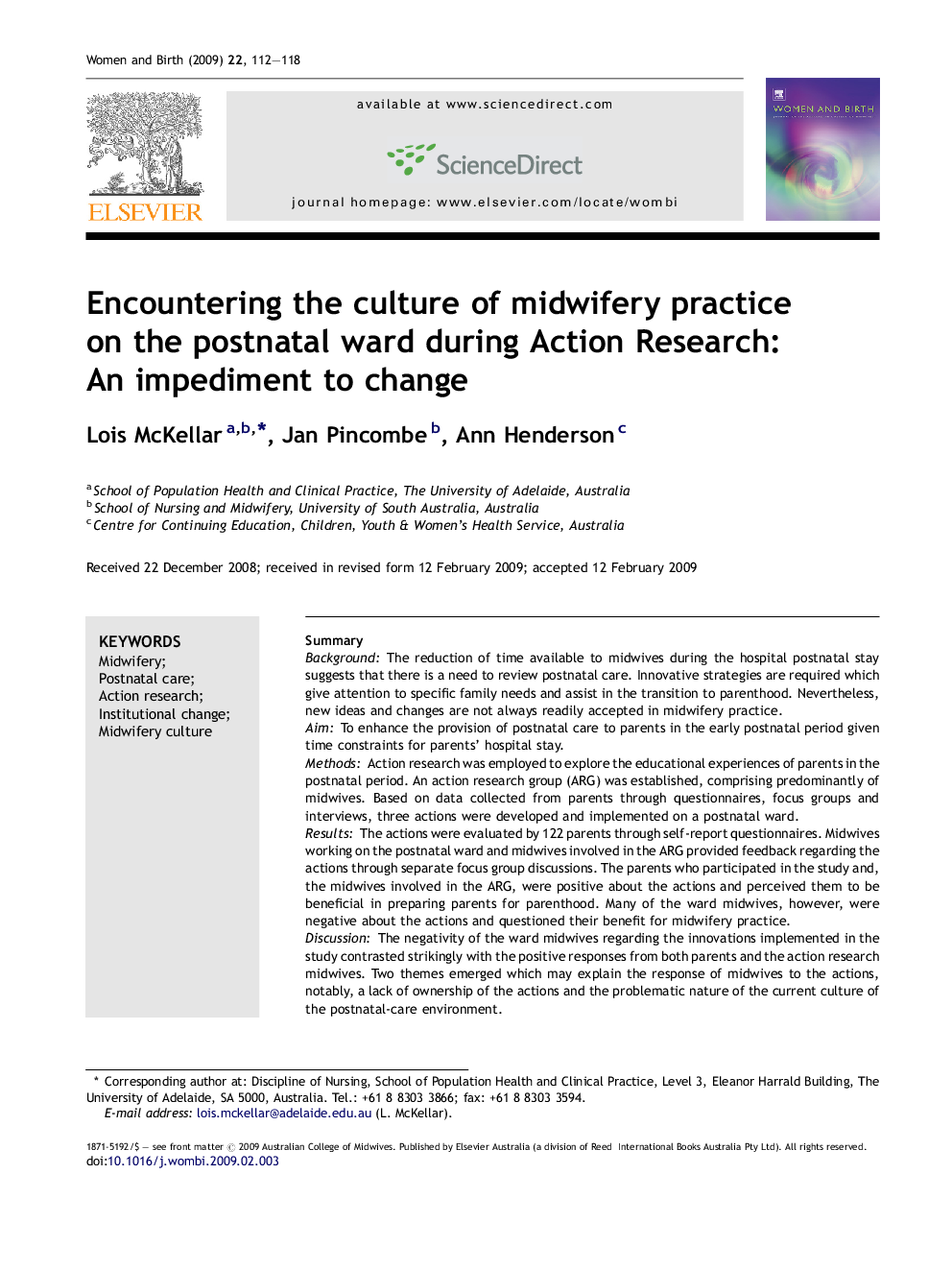| Article ID | Journal | Published Year | Pages | File Type |
|---|---|---|---|---|
| 2636470 | Women and Birth | 2009 | 7 Pages |
SummaryBackgroundThe reduction of time available to midwives during the hospital postnatal stay suggests that there is a need to review postnatal care. Innovative strategies are required which give attention to specific family needs and assist in the transition to parenthood. Nevertheless, new ideas and changes are not always readily accepted in midwifery practice.AimTo enhance the provision of postnatal care to parents in the early postnatal period given time constraints for parents’ hospital stay.MethodsAction research was employed to explore the educational experiences of parents in the postnatal period. An action research group (ARG) was established, comprising predominantly of midwives. Based on data collected from parents through questionnaires, focus groups and interviews, three actions were developed and implemented on a postnatal ward.ResultsThe actions were evaluated by 122 parents through self-report questionnaires. Midwives working on the postnatal ward and midwives involved in the ARG provided feedback regarding the actions through separate focus group discussions. The parents who participated in the study and, the midwives involved in the ARG, were positive about the actions and perceived them to be beneficial in preparing parents for parenthood. Many of the ward midwives, however, were negative about the actions and questioned their benefit for midwifery practice.DiscussionThe negativity of the ward midwives regarding the innovations implemented in the study contrasted strikingly with the positive responses from both parents and the action research midwives. Two themes emerged which may explain the response of midwives to the actions, notably, a lack of ownership of the actions and the problematic nature of the current culture of the postnatal-care environment.ConclusionIt appears that the provision of hospital postnatal care has been influenced by an underlying culture in midwifery practice, which in turn, has impeded the change required to enhance postnatal care.
